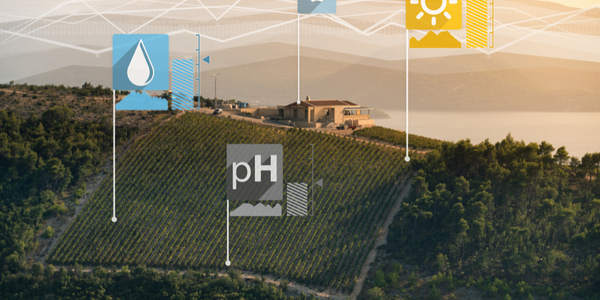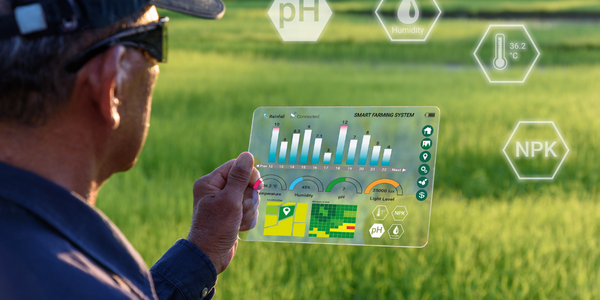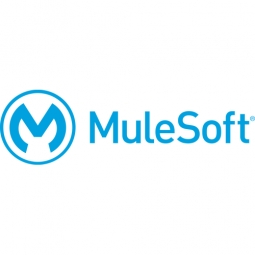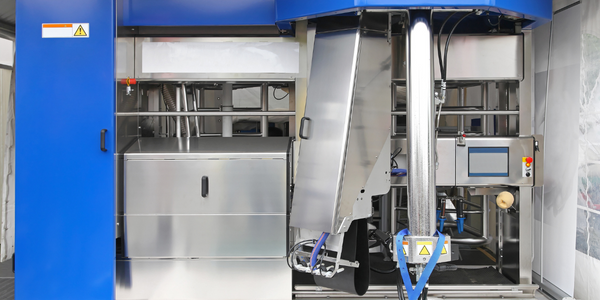Download PDF
Bayer doubles product development speed with API-led integrations
Technology Category
- Platform as a Service (PaaS) - Connectivity Platforms
- Application Infrastructure & Middleware - API Integration & Management
Applicable Industries
- Agriculture
Applicable Functions
- Product Research & Development
- Sales & Marketing
Use Cases
- Predictive Maintenance
- Supply Chain Visibility
Services
- Cloud Planning, Design & Implementation Services
- System Integration
The Challenge
Bayer Crop Science, the agricultural and environmental branch of Bayer Corporation, had a sprawling Salesforce ecosystem that was integrated with mobile applications, master data repositories, and the Bayer ERP system via a custom point-to-point (P2P) integration pipeline. This approach was challenging and costly to manage and scale. Data was held in silo systems that were difficult to access, slowing down product development and other projects. The complexity of the system also made it difficult for Bayer to resolve faults, leading to project delays that negatively impacted the business. Bayer needed to establish a scalable, consistent, futureproof integration strategy that is repeatable throughout the business to reduce development time and increase speed to market. They also needed to integrate multiple ecosystems around the globe with mobile applications, data repositories, and their SAP ERP system, and deliver a single view of the customer to stakeholders across the organization.
About The Customer
Bayer Crop Science is the agricultural and environmental branch of Bayer Corporation, a multinational pharmaceutical and life sciences company. The company conducts scientific research and innovates solutions to help feed our planet, such as new seeds that help farmers overcome challenges such as pests, diseases and drought. The Salesforce instance at Bayer had grown into a large, sprawling ecosystem spanning multiple groups across the globe. For example, Salesforce is integrated with mobile applications, master data repositories, and the Bayer ERP system. The company needed to update their technology, break down data silos and become more agile.
The Solution
Bayer deployed MuleSoft Anypoint Platform to integrate Salesforce Sales and Service Cloud using API-led connectivity, replacing the P2P integration pipeline. With MuleSoft, Bayer has been able to integrate Salesforce with existing legacy systems, gaining access to data in formerly siloed systems, to create a single view of all customer data. The API-based integrations enabled by MuleSoft give stakeholders easy access to the same accurate, up-to-date data, ultimately allowing them to deliver a better customer service experience. Additional MuleSoft technology — CloudHub, the platform as a service (PaaS) component of Anypoint Platform — eliminated the need for the Bayer team to manage AWS resources. This allowed the team to focus on developing more APIs in MuleSoft, rather than continue to build P2P connections. By eliminating P2P and custom code, MuleSoft has made Bayer’s integration architecture future-proof. Bayer also utilized the MuleSoft Metrics Toolkit to collect and aggregate data from their platform in Jira and publish that information in Splunk dashboards to share across multiple teams.
Operational Impact
Quantitative Benefit
Related Case Studies.

Case Study
Intelligent Farming with ThingWorx Analytics
Z Farms was facing three challenges: costly irrigation systems with water as a limited resource, narrow optimal ranges of soil moisture for growth with difficult maintenance and farm operators could not simply turn on irrigation systems like a faucet.

Case Study
Greenhouse Intelligent Monitoring and Control Solution
Farming Orchids is the most successful form of precision farming in Taiwan, and also the most exported flower. Orchids need a specific temperature and humidity conditions to grow and bloom, and its flowering time may not be in line with market demands, so the price collapses when there is overproduction. Therefore, some farmers began to import automated greenhouse control systems for breeding and forcing, which not only improves quality, but also effectively controls the production period and yield to ensure revenue. In 2012, an orchid farmer built a Forcing Greenhouse of about 200 pings (approximately 661 Square Meters) in Tainan, Taiwan. The system integrator adopted Advantech’s APAX-5000 series programmable automation controllers to build the control platform, coupled with Advantech WebAccess HMI/SCADA software, to achieve cloud monitoring. The staff of the orchid field can monitor important data anytime via smart phone, iPad, and other handheld devices, and control the growth and flowering conditions. System requirements: In the past, most environmental control systems of orchid greenhouses in Taiwan used PLCs (Programmable Logic Controller) with poorscalability and control, and could not be connected to the Internet formonitoring from the cloud. For advanced database analysis and networking capability, the PC platform must be adopted. Therefore, PAC Systems (Programmable Automation Controller) with both PLC programming capabilities andPC functions is a better choice.The environmental control of the Orchid greenhouse switches on and off devices like fan, shade net, cooling/heat pump, liquid flow control, water-cooling wall etc. It is controlled by a control panel of electric controllers, and is driven by a motor, to adjust the greenhouse temperature, humidity, and other environmental conditions to the set parameters.

Case Study
Enabling Internet of Things Innovation in Agriculture
DigiBale, wanted to apply technology know-how and IP from implementations successfully to more agriculture sectors including cotton, forestry, sugarcane and cattle. However, farmers and growers still have worries about the connected technology.

Case Study
Precision beekeeping with wireless temperature monitoring
Honeybees are insects of large economic value and provide a vital service to agriculture by pollinating a variety of crops. In addition, bees provide us with valuable products such as honey, beeswax, propolis, bee venom, etc. Monitoring of honeybee colony health, population, productivity, and environmental conditions affecting the colony health have always been exceedingly difficult tasks in apiculture. Research has shown that even small deviations (by more than 2°C) from the optimal temperatures have a significant influence on the development of the brood and the health of adult bees.







